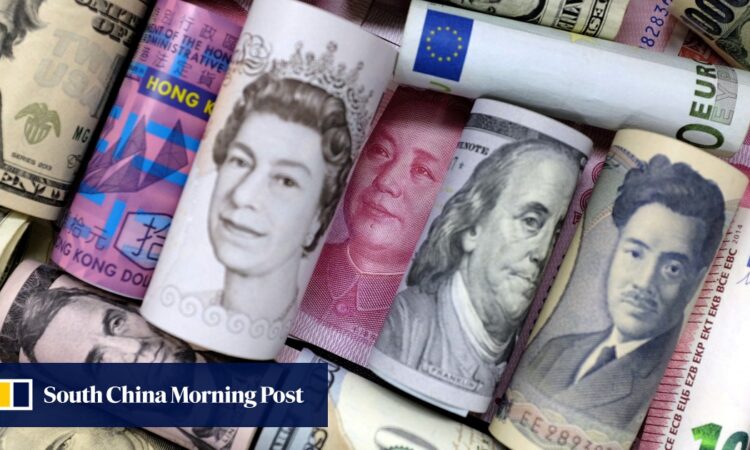
The economic expansion of Brics could determine the speed at which it adopts commercial and financial systems outside of the dollar sphere, posing certain challenges to the dollar’s dominant status as an international currency, they said.
Beijing has stepped up criticism of Washington for “weaponising” the US dollar over the past year and a half, citing Western sanctions on Russia for its invasion of Ukraine in February 2022, including freezing Russian central bank assets, kicking it out of the Swift global payment system, and also denying Moscow access to the US dollar.
Calls for de-dollarisation appear to have gained traction in recent months, such as when Brazilian President Luiz Inacio Lula da Silva openly called for local currency settlements, rather than through the US dollar, during his China visit in April.
Such currency unions are intergovernmental agreements involving two or more states sharing the same currency.
Last month, Alexander Babakov, deputy chairman of Russia’s State Duma, said that Russia was spearheading the development of this currency union for cross-border trade among a number of developing nations, according to Brics Information Portal.
“The news is expected to add new momentum to the trend of de-dollarisation in the global economy – if the currency is successfully issued, it is expected to drive the depreciation of credit currencies, such as the US dollar, relative to gold in the medium-to-long term,” Zheshang Securities said in an August 4 report.
However, Reuters reported on Thursday that a Brics currency was off the table, citing South African officials. As a new global currency, the expectation was that it might become analogous to the euro for non-Western states.
In its quarterly monetary policy report on Thursday, the People’s Bank of China vowed to promote the internationalisation of the yuan, further expand its use in cross-border trade and investment, and develop its offshore market.
More economies are accelerating the diversification of their foreign-exchange reserves, and this includes adopting currencies from emerging economies, such as the yuan.
“De-dollarisation is seen mainly in the central banks’ international reserves, as the dollar is being pushed out by a variety of currencies, including the [yuan],” ING said.
According to the Dutch bank, the US dollar’s share of global forex reserves fell to 58.6 per cent in 2022, hitting its lowest point since data was first available in 1995.
“Looking at the long-term developments, the USD seems to be replaced mostly by Asian currencies, namely the CNY and [Japanese yen],” the ING report said.
The ING said bilateral swap lines with various central banks, established by the People’s Bank of China since 2009, have been a “flagship example” that weaning the world off the dollar requires challenging its international role in trade invoicing.
However, given that higher returns on the US dollar’s interest rates make it attractive to the private sector, its share in global forex reserves climbed slightly to 59.2 per cent in the first quarter of 2023.
For private investors, the yuan is still far less attractive than the US dollar, as the yuan’s share of international assets outside central bank reserves grew from 5 per cent to only 6 per cent in seven years, compared with the dollar’s 49 per cent share last year.
The US dollar continues to be a leader in the international bond market, as its share in foreign liabilities remains at 48 per cent for bank and 51 per cent for nonbank sectors.
“A relative lack of liquidity and lingering investor concerns over potential capital controls may be inhibiting the growth of the market,” ING said. “In this respect, it seems the renminbi has not yet registered in most investors’ consciousness for bond issuance.”





